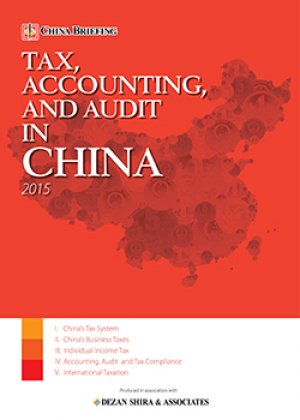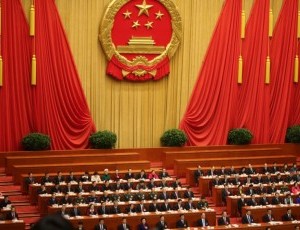No More Surprises as China Moves to Formalize Tax Legislative Process
As is customary every year in early March, the National People’s Congress (NPC) and the Chinese People’s Political Consultative Conference hold their annual meetings. Colloquially known as the “Lianghui” or “The Two Meetings,” these two sessions are often used to introduce major legislative changes. This year’s meeting session saw the first amendment of the Legislation Law, a law first enacted in 2000 to introduce a formal procedure for enacting new laws.
One of the key changes in the Legislative Law is that it now states that any introduction of new taxes, the setting or changing of tax rates and the regulation of tax collection must be enacted in a law promulgated by the National People’s Congress (NPC), China’s main legislative body.
The notion that tax law should be enacted by the NPC is not new. China’s constitution states that tax laws need to be enacted in a formal law, and the 2000 Legislative Law also said, in somewhat broader terms, that “the basic system concerning tax collection” can only be regulated through a formal law.
However, in 1984 the State Council (China’s highest executive organ) was authorized by the NPC to introduce business-related taxes by issuing provisionary regulations. This was done to speed up the legislative process during the early stages of China’s economic reform. These provisionary regulations can be issued much faster than a formal law enacted by the NPC. While granting the government a great degree of flexibility as China’s economy developed and matured, the need arose to have governance based more on the rule of law. To reduce legal uncertainty and increase transparency, the resolution authorizing the State Council to create provisional tax regulations was repealed in 2009.
 RELATED: Tax and Compliance Services from Dezan Shira & Associates
RELATED: Tax and Compliance Services from Dezan Shira & Associates
Of the 18 taxes presently in force, only three are formally enacted by the NPC; being the Individual Income Tax, the Corporate Income Tax and the Vehicle and Vessel Tax. The remaining taxes, including VAT, business tax and customs duties are provisionary regulations.
Following the amendment of the Legislative Law, the Legislative Affairs Commission of the NPC released a policy statement outlining how the principle that tax stipulations need to have their basis in a formal law will be implemented.
New taxes, changes in tax rate or other tax-related stipulations will no longer be enacted through State Council regulations. The existing tax regulations will now be converted into formal laws, with the full reform planned to be completed by 2020.
What Does This Mean for Foreign Investors?
The formal enactment of a law by the NPC follows a set procedure that is more involving and sophisticated than State Council regulations, which are of a lower order. For example, once a draft law is put on the agenda of the NPC’s Standing Committee, it needs to be made public. After it has been made public, the general public must have at least 30 days to offer suggestions on the draft bill. This requirement does not apply to State Council regulations.
![]() RELATED: China Key 2013 VAT and Legal Regulatory Updates
RELATED: China Key 2013 VAT and Legal Regulatory Updates
With tax-related stipulations now required to be introduced through the formal legislative process, foreign investors can expect to know much sooner in advance when tax law is being amended, or when new taxes are introduced. This enables companies to form a better idea of their tax liability, and facilitates tax planning. The reform is an important step towards more legal certainty and transparency.
|
Asia Briefing Ltd. is a subsidiary of Dezan Shira & Associates. Dezan Shira is a specialist foreign direct investment practice, providing corporate establishment, business advisory, tax advisory and compliance, accounting, payroll, due diligence and financial review services to multinationals investing in China, Hong Kong, India, Vietnam, Singapore and the rest of ASEAN. For further information, please email china@dezshira.com or visit www.dezshira.com. Stay up to date with the latest business and investment trends in Asia by subscribing to our complimentary update service featuring news, commentary and regulatory insight. |
![]()
 Tax, Accounting, and Audit in China 2015
Tax, Accounting, and Audit in China 2015
This edition of Tax, Accounting, and Audit in China, updated for 2015, offers a comprehensive overview of the major taxes foreign investors are likely to encounter when establishing or operating a business in China, as well as other tax-relevant obligations. This concise, detailed, yet pragmatic guide is ideal for CFOs, compliance officers and heads of accounting who must navigate the complex tax and accounting landscape in China in order to effectively manage and strategically plan their China operations.
 Double Taxation Avoidance in China: A Business Intelligence Primer
Double Taxation Avoidance in China: A Business Intelligence Primer
In our twenty-two years of experience in facilitating foreign investment into Asia, Dezan Shira & Associates has witnessed first-hand the development of China’s double taxation avoidance mechanism and established an extensive library of resources for helping foreign investors obtain DTA benefits. In this issue of China Briefing Magazine, we are proud to present the distillation of this knowledge in the form of a business intelligence primer to DTAs in China.
 Annual Audit and Compliance in China
Annual Audit and Compliance in China
In this issue of China Briefing, we discuss annual compliance requirements for foreign-invested enterprises, including wholly-foreign owned enterprises, joint ventures and foreign-invested commercial enterprises, as well as the less demanding requirements for representative offices. We also highlight the most recent tax and legal changes that will significantly influence the way companies do business in China in 2014.
- Previous Article Managing Your Accounting and Bookkeeping in China – New Issue of China Briefing Magazine
- Next Article Passare da un ufficio di rappresentanza (Representative Office – RO) ad una Wholly Foreign Owned Enterprise – WFOE: Quali benefici fiscali?

 By
By 







